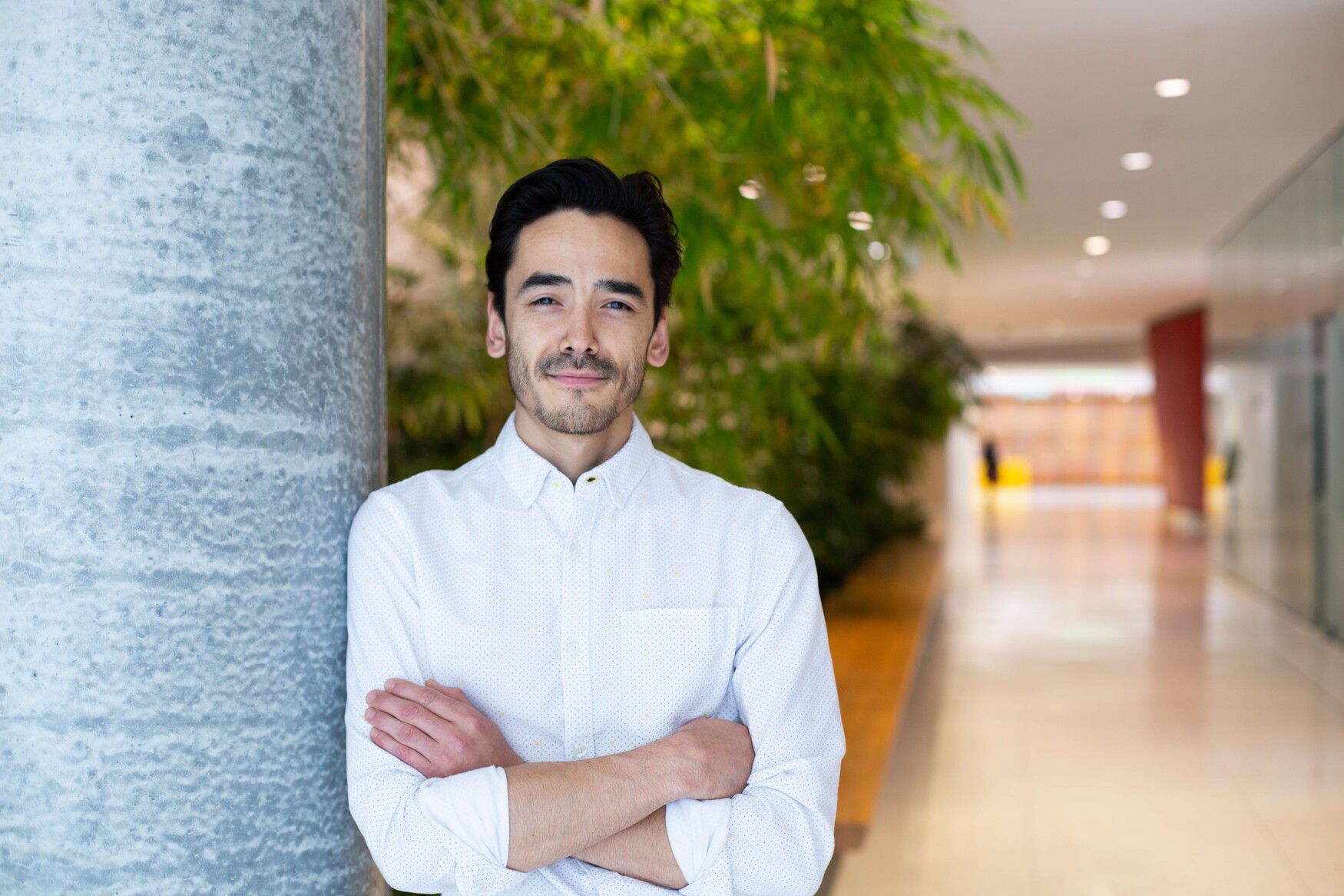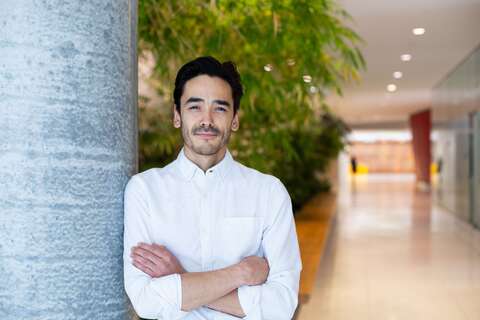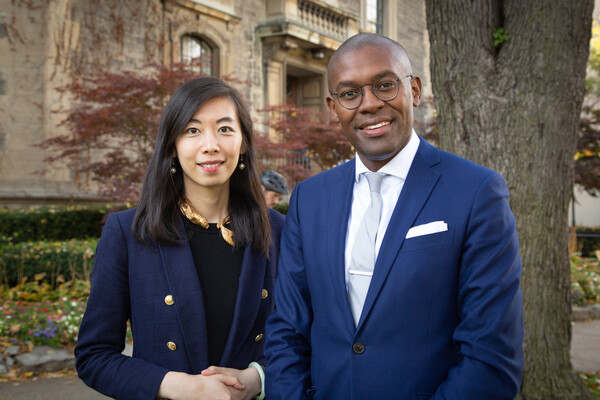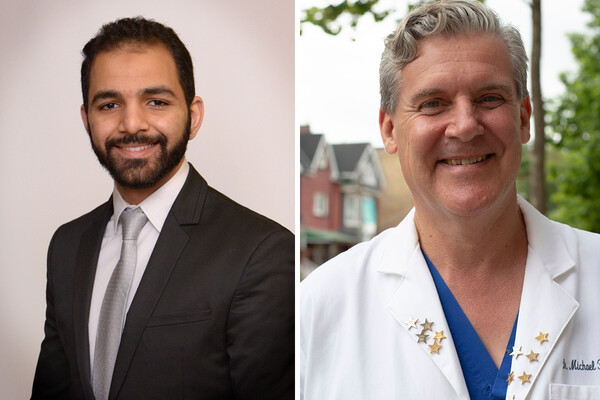Breadcrumbs
- Home
- MD/PhD Program
- News
- Faces of U of T Medicine: Tyee Fellows
Faces of U of T Medicine: Tyee Fellows

Julia Soudat

What made you want to become a doctor?
I wanted to be a doctor ever since my father told me I could be one, since my earliest memories. As an emergency physician himself, his belief in my potential gave me the resilience to persist until it became a reality. He knew the secret to becoming one was self-confidence and patience. But despite having this dream, I didn’t embrace the challenge until second year of university. That’s when I understood that if I wanted to pursue a medical career, I really had to buckle down. That year, my marks went up. I transferred to and finished my undergrad at the University of British Columbia (UBC) and applied to medical school there. I didn’t get in, but deep down – it was a relief because it gave me the time explore my other passion, research, and consider it as a career. I learned basic science research was too solitary and what I was missing was the connection with people. I wanted to use my education to help people directly. This led me back to medicine.
Was medical school what you thought it would be when you first started?
Prior to starting, I knew I could expect to be challenged by the curriculum, be granted the privilege of providing care to those in need and be given the opportunity to foster life-long relationships. Yet, there have been so many unexpected detours that I could not anticipate. Whether it was performing live for the first-time as the lead guitarist in the ‘Daffydil’ musical or overcoming a failed exam, these unexpected moments are what define and give colour to my medical school experience. So, in reflecting on these last four years I didn’t think I would come to value and appreciate my hardships as much as I do my achievements.
Also unexpectedly, I didn’t realize how much I would embrace my Indigenous heritage during medical school.
Can you talk a bit about that?
My whole life, I’ve been going through the process of acceptance. Since the age of one, I was raised by my Caucasian father in Vancouver as my Indigenous mother returned to her community. The only connection I had to my community was through my aunt and uncle, who would visit us once a year. As a child, I was quite embarrassed to be Indigenous. My sisters were the only other Indigenous peers I knew. I would hide my heritage. So when people asked about my background, I would just say I was white.
This perspective changed with time. As I reached higher in academia, I noticed the waning of Indigenous representation the further I went. Although this did not surprise me, I did not appreciate the increasing responsibility of my role as not only an Indigenous person, but an Inuit physician-to-be. My actions – good and bad – will reflect on my heritage. It is already an enormous privilege and responsibility to be a physician - being an Inuit physician, even more so. This is quite humbling. I hope my actions will exemplify to both of my communities the awesome potential of Indigenous peoples.
Have you worked on any exciting projects or discovered new passions in the last four years?
In first year, I discovered the thrilling sport of rock climbing. Besides the obvious things that make exercise great, it is a sport that demands strength, rewards creativity, fosters resiliency, promotes exploration, and welcomes everyone. In second year, I got to check-off my one and only bucket-list item I had for myself during medical school: play guitar live. Besides allowing me to explore my interests in clinical medicine, third year connected me to a person who may be the wisest person I’ll ever meet – my first patient. Fourth year gifted me the impossible, certainty. The lump in my throat after reading “we regret to inform you that you did not match” gave me certainty in knowing my pursuit for Emergency Medicine is true.
What’s coming up next?
Despite my best effort and the support of all those who helped shape my application, I did not match to my dream residency of Emergency Medicine. In reflecting on my application, I have chosen to broaden my elective experiences across more specialties, universities, and countries. I am overjoyed to share that I am one of twenty participants selected for the 2019 University of Texas Medical Branch’s (UTMB) Principles of Aviation and Space Medicine summer course. This exciting course involve daily lectures from UTMB’s faculty and their affiliates like NASA, as well as hands-on experiences like visiting the Johnson Space Center!
Outside this exciting opportunity, I aim to finish medical licensing exams for both Canada and the United States, receive point-of-care ultrasound certification, and return to my Indigenous community by securing elective time working in Canada’s Arctic. I ultimately hope to put forward a residency application next year that exemplifies the grounding nature and exciting potential of going unmatched.
What helped you through the challenging times?
Simple, ask for it – help. The irony in this advice is that asking for help is the most challenging part. What may ease this challenge is to know that asking for help is just like asking someone on a date, it gets easier the more we do it. So, always swipe right on help.
What advice would you give to incoming students?
Absurd to think I know,
what advice to bestow;
Mature as fourth year may be,
endless knowledge yet to see;
To homage thy wise, short, stellar, green master,
do I shall do, for try is no such matter;
To ensure humble and kind word-landing,
please know I am no Frederick Banting;
Before ending this dyad word-stream,
share I must share just one more small theme;
Lonesome if one and burdensome if three,
wholesome if two, so two advice it be;
Support we neglect are the challenges we endure,
so help we must offer and always, always procure;
Falling bruises thine ego and elbow,
failure today is pleasure tomorrow.
News


